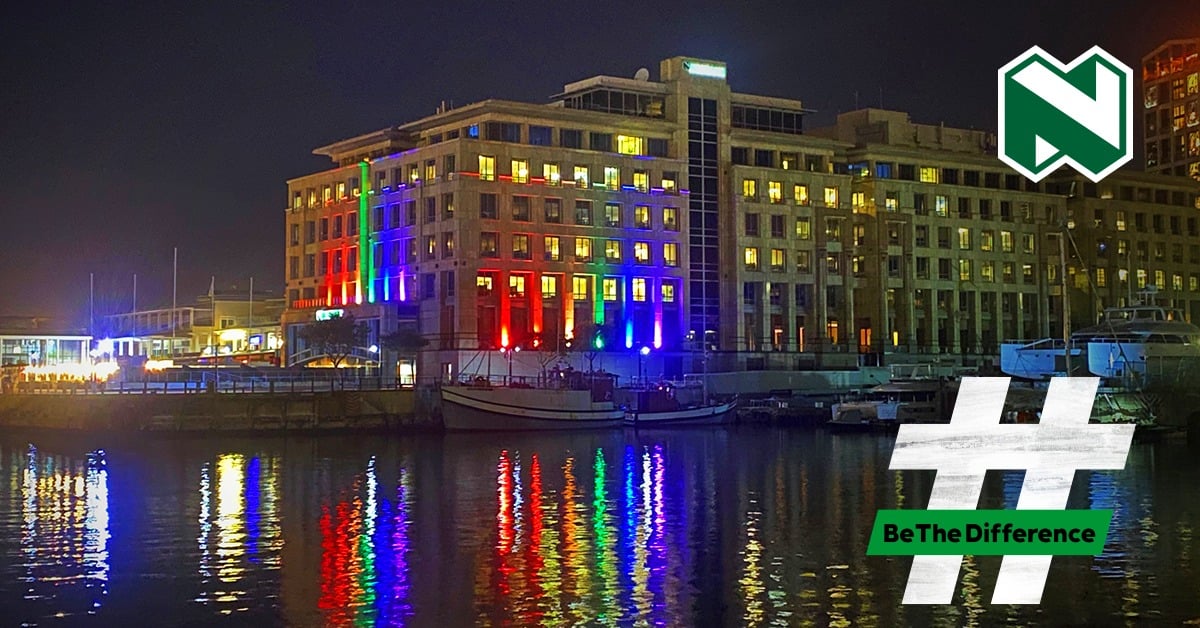Internal company policies can shift external attitudes towards LGTBQ+ community
Several research studies have shown that people spend most of their time at work. The average time spent in the workplace, over a lifetime, is 90000 hours - a third of a person’s life. This means that organisations have a captive audience whose attitudes, thoughts and ideas can be positively influenced or changed not only for the gain of the company but also for the greater good of society.

By Craig Barnes, Chairperson of Nedbank’s LGBTQ+ Forum
Despite South Africa having made commendable strides in advancing these rights and promoting equality, the LGTBQ+ community still faces a myriad of challenges. The LGTBQ+ community continues to bear the wrath of hate speech and hate crimes such as the so-called corrective rape and violence, societal discrimination and condemnation, homophobia, and inaccessibility to adequate healthcare due to discrimination.
Equally so in the labour market, the queer community has continued to bring to light the discrimination they face including being denied access to employment opportunities, training, and career advancement prospects because of their sexual orientation, gender expression and gender identity.
A survey study titled “Progressive prudes: attitudes towards homosexuality and gender non-conformity in South Africa” conducted by The Other Foundation, an African trust that advances equality and freedom in southern Africa, with a particular focus on sexual orientation and gender identity, noted that 51% believe that gay people should have the same human rights, but a staggering 72% feel that same-sex relations are morally wrong.
The reality is that the other 49% of South Africans who don’t advocate for the LGTBQ+ community to enjoy the same human rights as others, and the majority who deem homosexuality as morally wrong, are most likely family, friends or acquaintances to those employed by corporate SA or are themselves employees in South Africa’s labour market.
Therefore, by actively and intensely advocating for diversity and inclusion of the LGTBQ+ community through education, providing an organisational culture that is conducive for their protection and fair career advancement, companies put themselves in a powerful position to shape thoughts and attitudes of their employees towards homosexuality who will, in turn, influence those in their circles outside of work.
This is in line with the concept of ‘social influence’ which psychologists have, over decades, studied intensely. Social influence refers to “the way in which individuals change their ideas and actions to meet the demands of a social group, perceived authority, social role or a minority within a group wielding influence over the majority.” For example, a student may alter his or her behaviour to match that of other students in a class.
Studies have also found that we are influenced by the requests of people who are seen as holding positions of authority. This means that progressive leadership within organisations has a paramount role to play in advancing diversity and inclusion.
.jpg)
Organisational culture
Organisations that strive to create a positive company culture, one that reflects a strong purpose, shared values, beliefs and attitudes, respect for employees and promotes overall staff well-being, reap the rewards of an increase in productivity, enthusiasm and performance.
Inherently, companies with a strong and thriving culture don’t just have employees, they have amazing advocates for their brand. Employees who love where they work will not hesitate to let others know. This is where the opportunity lies to empower them with education and information to dispel myths and misinformation about the LGTBQ+ community, advance the agenda of equal opportunity in the workplace and promote the acceptance of one another regardless of sexual orientation and gender differences. The intention is not only to ensure the culture is upheld in the organisation, but also for employees to draw inspiration from the culture to influence their communities.
As Nedbank, our culture transformation journey also integrates DEI and promotes it as a defining characteristic that gives all Nedbankers a sense of belonging. The Nedbank Diversity, Equity and Inclusion Forum (NDEIF) (formally known as the Nedbank Employment Equity Forum) is a consultative forum linking management and nominated employee representatives.
NDEIF focuses on ensuring that the group meets its employment equity plan, that barriers to workplace transformation are identified and addressed, and that the plan is aligned with the strategic objectives of the business.

Leading by example
Solid HR policies and a positive company culture are not sufficient to influence the change that society needs to see in attitudes and actions towards the queer community. Brands need to lead by example to inspire their employees to follow suit. This is where meaningful and impactful interventions, activations and advocacy campaigns play a pivotal role in driving the diversity agenda. Action is key.
For example, Nedbank launched its LGTBQ+ Forum almost four years ago which provides a platform for members to participate fully in the bank’s transformation agenda. The LGTBQ+ Forum engaged in a series of interventions to advocate for the rights and protection of the LGBTQ+ community.
These interventions, amongst many others, include lighting the Nedbank head office in Sandton, Johannesburg, in the colours of the rainbow Pride flag during Pride Month in 2021. Nedbank also participated in the South African Workplace Equity Index (SAWEI) benchmark to determine the level of the organisation’s inclusivity in terms of the LGTBQ+ workforce. Nedbank was awarded a bronze status by SAWEI, which highlights that we are moving in the right direction, despite still having some work to do.
In keeping with the culture of encouraging employees to be a part of the company’s transformation agenda, Representatives of the LBTQI+ Forum attended various cluster EE forums, cluster engagement sessions and sessions with graduates with the intent to raise awareness.
This year, the LGTBQ+ Forum launched a Digital Learning Pathway which educates Nedbank employees about the community. For this year’s International Pride Month, the forum is rolling a four-part weekly educational series which seeks to educate Nedbank staff on what Pride is and profiling LGTBQ+ Allies whom community members can actively talk to when they encounter issues and challenges in and outside of the workplace.
The organisation’s Code of Ethics to include gender expression and gender identity under forms of discrimination that are prohibited. This is in addition to sexual orientation that has been included in the policy for some time. As a result, the “paternity leave” category has been updated to “parental leave” and the surrogacy leave category became more inclusive by changing “surrogate mother” to “surrogate parent.” These changes are in line with Nedbank’s commitment to bring more inclusive language and gender neutrality in our policies.
Nedbank has also approved plans to construct gender neutral restrooms over the next few months. Societal pressures influencing which restroom to use is a common problem for people who identify as transgender; in a recent US survey of transgender people, nearly one in ten respondents reported that they’d been denied access to a bathroom in the past year.
We believe that active collaboration with other corporations is essential to advancing the LGBTQ+ agenda. Thus, we will be participating in the Pride @ Work panel discussion which is aimed at engaging and collaborating with other organisations to create safe inclusive workplaces while tackling challenges, concerns and amazing stories, amongst other points of discussion.
The truth of the matter is that people want to see change for the better for their families and in their communities. By empowering employees with adequate knowledge and showing them the power of diversity and inclusion in the workplace, and how it fosters cohesion and oneness as well as acceptance through progressive policies and positive company culture, companies indirectly advocate for the rights, protection and acceptance of the LGTBQ+ in communities.



.svg)












